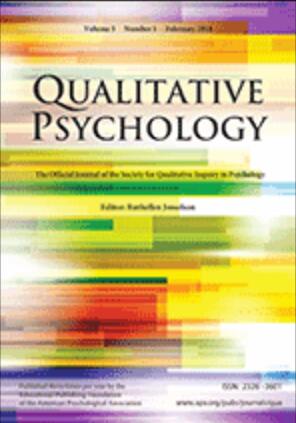A Tale of Two Methods: Gustave Gilbert, Stanley Milgram, and the “Mysterious Nazi Mind” (1945–1965)
IF 14.3
Q2 Psychology
引用次数: 3
Abstract
Stanley’s Milgram’s (1963) research on “Obedience to Authority” is the most famous study in the history of American psychology. Milgram’s extraordinary historical and contemporary celebrity as “the” psychologist of Nazi atrocities stands in contrast to the relative obscurity of another American psychologist who studied the actions of real Nazis 15 years before the first results of the Obedience research were published—Gustave Gilbert (1911–1977). This article provides an overview of Gilbert’s compelling but neglected career as a psychologist of the Nazi mind and it contrasts his obscurity with Milgram’s renown. Particular attention is given to the methods used by these 2 figures. Gilbert relied primarily on qualitative methods drawn from actual Nazi leaders and his explanation was embedded in the historical particulars of prewar Germany. In contrast, Milgram appeared to transform the Holocaust into a simple laboratory tableau, one that perversely democratized the slaughter making it accessible to everyone while simultaneously implicating modern Americans in the most horrific crime in history—“had you been in Germany you would have been a Nazi too.” The appeal of these 2 approaches is considered in relation to the disciplinary and cultural ethos of Cold War America.两种方法的故事:古斯塔夫·吉尔伯特、斯坦利·米尔格拉姆和“神秘的纳粹思想”(1945-1965)
Stanley’s Milgram(1963)关于“服从权威”的研究是美国心理学史上最著名的研究。作为研究纳粹暴行的心理学家,米尔格拉姆在历史上和当代都享有非凡的声誉,这与另一位研究真正纳粹行为的美国心理学家古斯塔夫·吉尔伯特(gustave Gilbert, 1911-1977)形成了鲜明对比,后者在《服从》研究的第一个结果发表15年前就研究了真正纳粹的行为。这篇文章概述了吉尔伯特作为纳粹心理心理学家的引人注目但却被忽视的职业生涯,并将他的默默无闻与米尔格拉姆的名声进行了对比。特别要注意的是这两个图所使用的方法。吉尔伯特主要依靠来自实际纳粹领导人的定性方法,他的解释植根于战前德国的历史细节。相比之下,米尔格拉姆似乎把大屠杀变成了一个简单的实验室场景,一个反常地将屠杀民主化,使每个人都能接触到它,同时将现代美国人卷入历史上最可怕的罪行——“如果你在德国,你也会成为纳粹分子。”这两种方法的吸引力与冷战时期美国的学科和文化气质有关。
本文章由计算机程序翻译,如有差异,请以英文原文为准。
求助全文
约1分钟内获得全文
求助全文
来源期刊

Qualitative Psychology
Psychology-Psychology (all)
CiteScore
7.80
自引率
0.00%
发文量
15
期刊介绍:
The mission of Qualitative Psychology journal is to foster innovative methods, theories, and empirical research in qualitative inquiry within psychology. The journal aims to highlight the unique contributions of qualitative research in advancing psychological knowledge. Published studies not only explore substantive topics but also address issues related to epistemology, the philosophy of science, and methodological criteria that impact the formulation, execution, and interpretation of qualitative research.
Qualitative Psychology promotes a diverse range of methodological approaches, including narrative, discourse analysis, life history, phenomenology, ethnography, action research, and case study. Additionally, the journal puts emphasis on discussing the teaching and training of qualitative research methods to develop competent qualitative researchers.
 求助内容:
求助内容: 应助结果提醒方式:
应助结果提醒方式:


